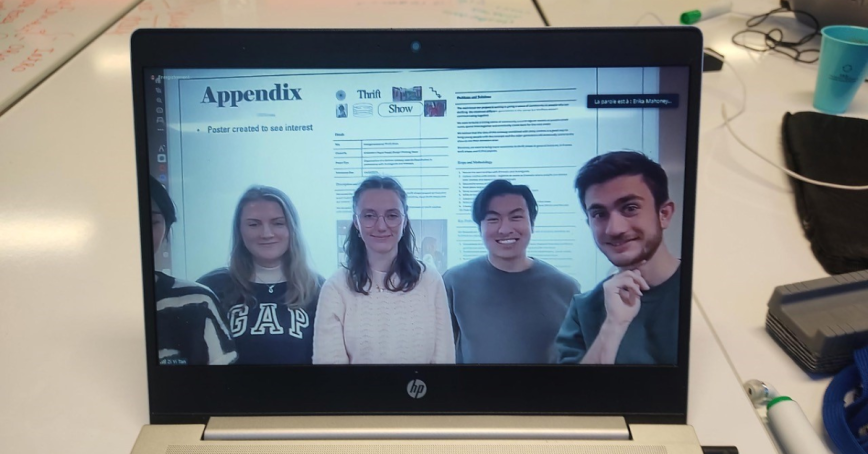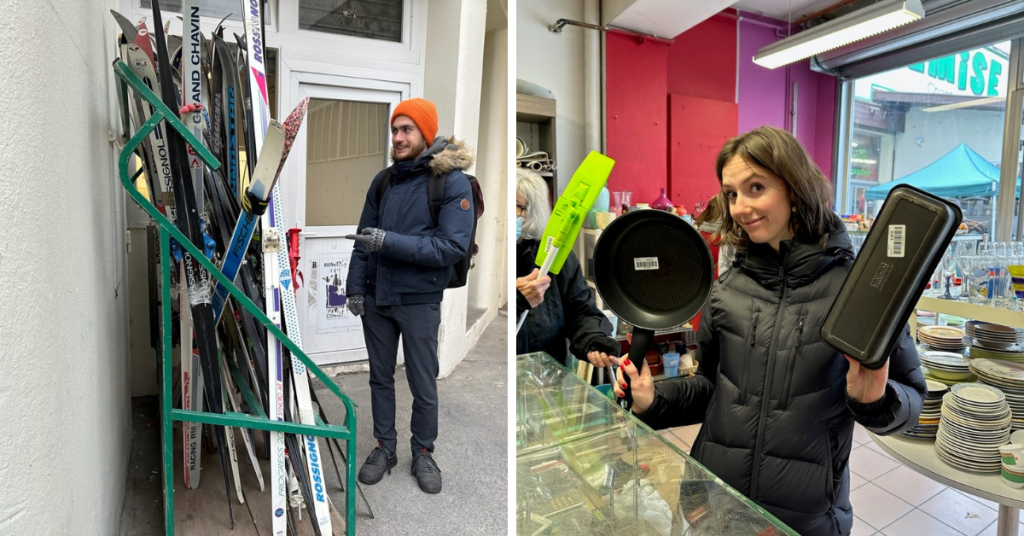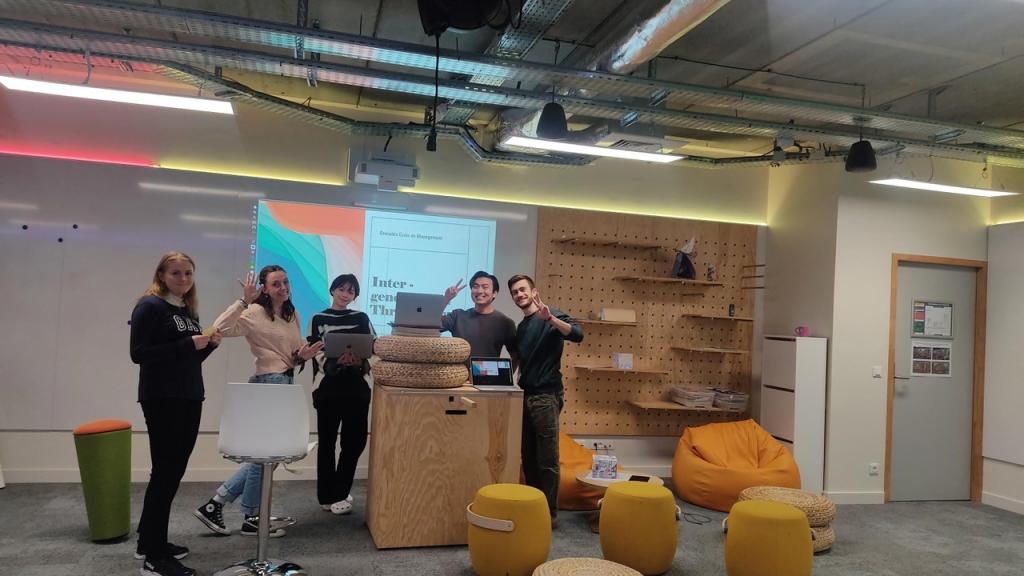A fitting solution: Students try on design thinking for size … and win

When Alex Furlan signed up for Royal Roads University’s sixth Annual Design Thinking Challenge, he had never heard of the problem-solving technique before, nor had he ever set foot in a thrift store. The Grenoble School of Management student got a crash course over the four-week challenge – and took the top prize, along with his teammates, at the annual competition.
“I love these kinds of challenges,” says the Bachelor in International Business student via Zoom from his apartment in southeastern France. “We were told we’d be working on an issue of societal concern. I thought it could help people, so I thought, ‘why not? Let’s give it a try.’”
The Design Thinking Challenge, a virtual event where business students from around the world compete against one another to create solutions to a real-world problem, wrapped up Feb. 18. The 2023 event asked students to consider how this year’s client, Beacon Community Services, might use its thrift stores to help two different groups of people deeply connect with each other.

After interviews, surveys, and site visits to local thrift stores, the team from Grenoble proposed a two-part idea that would help connect seniors with the international community.
Six teams of undergraduate students from post-secondary schools in Canada, the U.S. and France took part in the challenge. To be successful, students had to think beyond typical marketing solutions to present new and innovative ways to redesign the thrifting experience in service of inclusion and community-building.
Over four weeks and three challenging rounds, the Grenoble team did just that, earning them the $6,000 top prize.

Through the process, Tan says the team learned that stories were really the foundation to community-building.
After interviews, surveys, and site visits to local thrift stores, the team from Grenoble proposed a two-part idea that would help connect seniors with the international community.
Part one would involve inviting the two groups to connect at an in-store event. Newcomers would bring an article of clothing that was connected to a meaningful story in their lives – a jacket they’d worn when they first come to Canada perhaps, or maybe an apron that held stories of a homemade dumpling recipe passed down over generations. The seniors, who the students knew made up a significant proportion of both Beacon’s clients and volunteers, would be invited to bring a thrifted item of meaning for them.
“The idea is that they would share their stories about each of these items and connect on a deeper level,” says Furlan, who split his childhood growing up in France and Italy.
The second part of the idea is the creation of a permanent “story corner”, a place for people to drop in, talk and maybe share new stories, says Zi-Yi Tan, fellow Grenoble teammate who is originally from Malaysia.
Through the process , Tan says the team learned that stories were really the foundation to community-building.
“If you can get locals to share their values and the values of the community to the international community, you’ll better integrate the community of not only Beacon, but also of the full community as a whole, he says. “So we really saw that as an opportunity to bring people together.”
They weren’t the only team to suggest story sharing or reaching out to the newcomer population. The team from Royal Roads University, who tied with Okanagan College for second place, proposed Beacon could engage both thrift store donors and shoppers by collecting and sharing the stories of donated clothing and goods. Okanagan College, who placed first in last year’s challenge, proposed a “newcomer neighbor” volunteer program that would connect locals and immigrants through social activities.
“Honestly, any of them could have won in another year,” says Amy Zidulka, Royal Roads School of Business associate professor and Design Thinking Challenge co-organizer. “They were all really good ideas. They really listened to the client and they really innovated.”
Jackie Leuchter, senior thrift shop manager for Beacon’s seven stores, acted as a challenge judge alongside Beacon Community Services CEO Tricia Gueulette. Both say the proposed ideas were practical and inspiring.
“All of the ideas were very simple and not very expensive to implement. We do have a lot of volunteers and I think if we engage with them, we could really get some excitement building around it.”
With only a few months left of their studies, Furlan and Tan are looking to the future – a job in finance for the former, and perhaps a career in design for Tan.
“Before the challenge, I didn’t know there were jobs for design thinkers,” Tan says. “But now I’m going to start looking for jobs in that direction. I think I’m pretty good at it.”
We always want to hear stories about the people, programs and places that are the Royal Roads experience. Share yours via the RRU Story Exchange and it could be featured on our website and social media.